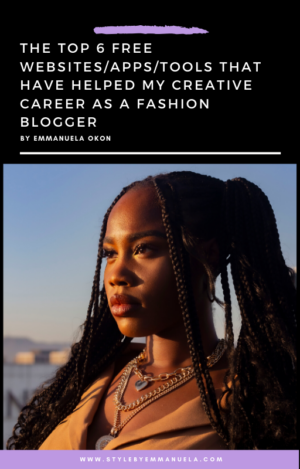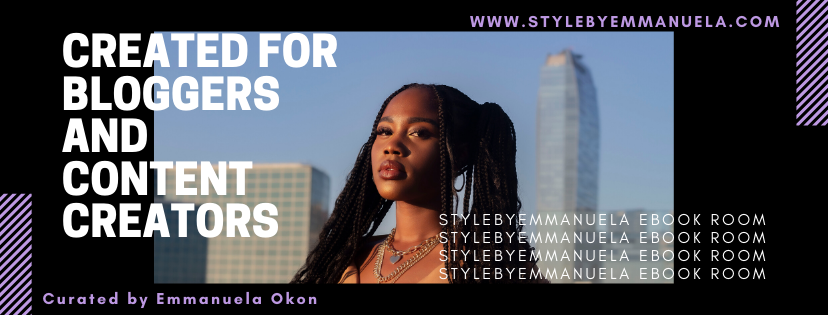How Social Media is Redefining the Meaning of Work – Social Media Influencers are experts when it comes to ‘social distancing’ – it comes with the job!
Imagine, having to adapt to a work-culture where you can work remotely beyond the workspace, i.e. working from home. In all honesty, the outbreak of the Coronavirus has persuaded many individuals into ‘working remotely’.
For instance, corporate offices, standalone stores and even malls are temporarily closed down for foot traffic. Although, this working from home culture is no surprise to a group of people, popularly known as Social Media Influencers or Digital Content Creators.

We can say that the ‘COVID-19’ is not laying off everyone from work. Instead, with the use of technology, digital work via social media platforms like Instagram, Twitter, Facebook and even Tik-Tok are work-outlets for social media influencers during this uncertain time.
For instance, Fashion blogger & public figure, popularly known on Instagram as ‘@greylayers,’ made a remark concerning the coronavirus situation in her photo caption. She says, “Wow, bars, clubs and gyms all closed? My life is about to seriously be exactly the same, and I am not mad about it at all.” (Grey, 2020).
Jeanne’s caption evokes so much humour, but looking at the reality of things, this is the same way other content creators may respond to the Coronavirus situation.
During this global pandemic, social media continues to show us that with microworkers like social media influencers, work is not limited to being stuck in an office. Instead, it showcases that some people are still working. The latter makes it clear that a substantial (ever-growing) amount of value and capital is generated by social media influencing work. Even during a global pandemic lockdown!
With the previous influencer example, it is clear that just as physical businesses need employees, digital businesses need a powerful sales magnet that can operate digitally. Retailers aka businesses/brands are transitioning their resources online and therefore selling in stores remains limited or restricted for the foreseeable future.
Since retailers can not rely on in-store sales, they are really pushing forward to influencers as their source of the distributive sales force.
For instance, I was scrolling through my Instagram page and noticed a post from @cynthianyongesa, who is a lifestyle content creator. In response to the pandemic, she states in her IG caption saying, “I know everyone is indoors but that does not mean you cannot have your hair smelling like heaven.” (The African Unicorn, 2020). The latter is an excellent example of how influencers are using social media (technology) to bridge this gap of work, beyond a standard working environment. In this context, Cynthia was able to use her social media brand to help promote a product for a hair company. This social media promotion can potentially drive E-commerce sales to the hair company’s online store. The latter is evident that technology can multiplicate human labour rather than ruining it because of a global pandemic.
Also, the influencer marketing and it’s relation with social media just goes to show us that because influencers/content creators have multiple platforms and categories, they can easily transition their daily routines into digital marketing. For instance, there are social media influencers out there who feel the need to get more involved in using their Youtube platforms during this quarantine period. This is because people will be glued to their phones and laptops during this time. For example, we have fitness Youtubers like German influencer, Pamela Reif (@pamela_rf), who uses her Youtube videos to curate free home workout plans for her audience. Personally, I am a huge fan of her workouts and I have been doing them consistently since the gyms closed down.
In this context, she is monetizing her Youtube videos, making some extra income from home while also positively impacting the lives of consumers virtually!
We have taken a closer look at how microworkers such as influencers are still thriving in the job sector despite the on-going situation of the Coronavirus pandemic. At this point, going against the traditional notion of work is something social media influencers have always lived by.
Social media has shown us that the power of influencers is a vital form of brand marketing even during a global pandemic! Most importantly, influencers are ‘the medium.’ which is a means as to how brands can reach out to their customers via digital networks. The interconnection between how technology has redefined digital work by shifting the gaze beyond the office shows that working from home is a blessing. Yes, the world is at a halt from regular activities. However, it is safe to say that the on-going crisis, is in fact, a wakeup call for microworkers like social media influencers to put their best work forward.
Well, that’s it for today’s blog post. I hope this post has been able to give a different perspective about the influencer marketing industry.
[sponsored post. all opinions are 100% mine]
BEST-SELLING PRODUCTS
-
 Eguide: The Top 6 Websites/Apps/Tools That Have Helped My Creative Career As A Fashion Blogger$0.00
Eguide: The Top 6 Websites/Apps/Tools That Have Helped My Creative Career As A Fashion Blogger$0.00 -
Product on sale
 How to Confidently Pitch Yourself to Brands (Original Version)Original price was: $18.00.$14.00Current price is: $14.00.
How to Confidently Pitch Yourself to Brands (Original Version)Original price was: $18.00.$14.00Current price is: $14.00. -
Product on sale
 E-book: How to Setup a Fashion/Beauty/Lifestyle Blog Using WordPress.org (Original Version)Original price was: $21.00.$14.00Current price is: $14.00.
E-book: How to Setup a Fashion/Beauty/Lifestyle Blog Using WordPress.org (Original Version)Original price was: $21.00.$14.00Current price is: $14.00. -
Product on sale
![[Template] - Lifestyle Youtuber Media Kit Template by Emmanuela Okon](https://stylebyemmanuela.com/wp-content/uploads/2020/03/1-4-300x424.png) [Template] – Lifestyle Youtuber Media Kit Template by Emmanuela OkonOriginal price was: $42.00.$28.00Current price is: $28.00.
[Template] – Lifestyle Youtuber Media Kit Template by Emmanuela OkonOriginal price was: $42.00.$28.00Current price is: $28.00. -
Product on sale
 Custom Media Kit DesignOriginal price was: $55.00.$42.00Current price is: $42.00.
Custom Media Kit DesignOriginal price was: $55.00.$42.00Current price is: $42.00. -
Product on sale
![[Template] - Newbie Creator / Blogger Starter Media Kit Template by Emmanuela Okon](https://stylebyemmanuela.com/wp-content/uploads/2020/04/1-300x424.png) [Template] – Newbie Creator / Blogger Starter Media Kit Template by Emmanuela OkonOriginal price was: $42.00.$28.00Current price is: $28.00.
[Template] – Newbie Creator / Blogger Starter Media Kit Template by Emmanuela OkonOriginal price was: $42.00.$28.00Current price is: $28.00. -
Product on sale
![[Template] - Fashion & Lifestyle Influencer Media Kit Template](https://stylebyemmanuela.com/wp-content/uploads/2020/03/1-5-300x424.png) [Template] – Fashion & Lifestyle Influencer Media Kit TemplateOriginal price was: $42.00.$28.00Current price is: $28.00.
[Template] – Fashion & Lifestyle Influencer Media Kit TemplateOriginal price was: $42.00.$28.00Current price is: $28.00. -
Product on sale
 WordPress.com to WordPress.org Blog Migration / WordPress Blog SetupOriginal price was: $110.00.$83.00Current price is: $83.00.
WordPress.com to WordPress.org Blog Migration / WordPress Blog SetupOriginal price was: $110.00.$83.00Current price is: $83.00. -
 Ebook/Magazine: Beyond the IG Filter – Through the Fashion Bloggers Lens$5.00
Ebook/Magazine: Beyond the IG Filter – Through the Fashion Bloggers Lens$5.00

Comments are closed.